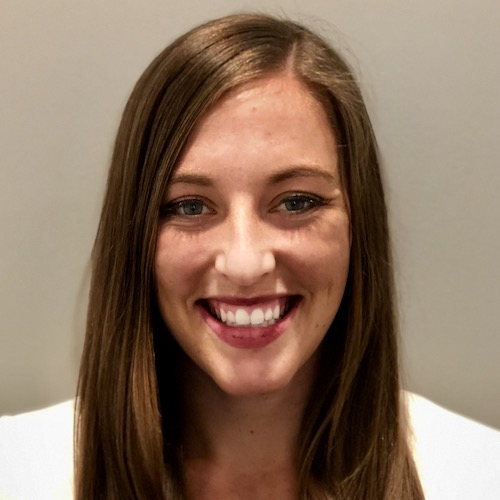Many people look for jobs in healthcare because they want to help others, make a difference in the world, and have a meaningful career. Often, people who choose healthcare jobs are highly empathetic and care deeply about others.
Unfortunately, the caring attitude necessary for being a great healthcare worker also puts people at risk of mental health struggles. Watching people suffer and die as part of a routine day at work can be difficult for anyone, especially those who are highly sensitive and caring.
Healthcare professionals also deal with a lot of emotional family members and have to remain calm and professional in all kinds of situations. Family members may deal with their grief in ways ranging from crying to inappropriate laughter to anger and shouting at the caregivers. This can be emotionally exhausting.
Healthcare can also be a stressful career. Making a mistake could mean life or death for another person. Hospitals are often short staffed and caregivers are working with fewer staff members than they need. In fact, experts estimate that there will be a worldwide shortage of over 18 million healthcare workers by 2030.
Mental health difficulties are so common, that 93% of health workers report being stressed out and stretched too thin.
Medical students may begin to struggle with stress and anxiety before they even start working in their chosen field. 27% of medical students report depressive symptoms during school and 11% report suicidal ideation. This is due to the highly demanding school programs and long hours required of medical students.
Fortunately, there are resources available for medical students and healthcare providers who are struggling with their mental health.
SAMHSA
SAMHSA stands for Substance Abuse and Mental Health Services Administration. They have helplines and treatment facilities to help with substance use disorder, behavior health problems, mental illness, and opioid addiction.
They also have a blog full of useful articles about suicide prevention, drug use, and strategies for supporting a loved one with mental illness. In addition, they are the lead federal agency for behavioral health research.
The mental health hotline is available to anyone in crisis. Anyone struggling with their mental health can call or text 988 to speak to someone who can help.
National Institute of Mental Health
The National Institute of Mental Health (NIMH) is the leading research institution for mental illnesses. They provide expert-reviewed information on a range of mental health topics in the form of articles, brochures, fact sheets, and statistics.
The NIMH also provides opportunities for people to participate in research studies regarding mental illness. Often, clinical trials and research studies are good options for people who have tried other treatments and have been unsuccessful.
In addition, their website provides an option for veterans crisis chat online and disaster distress helpline (1-800-958-5990).
Physician Support Line
Seeing a mental healthcare provider can be especially scary for physicians, who do not want mental health struggles to impact their ability to keep working as a doctor. Their mental health struggles may also be unique because their decisions may cost another person their life, which can be extremely difficult to speak about.
The Physician Support Line (1-888-409-0141) is a completely confidential help line specifically created for physician and medical students. They are open Monday through Friday from 8am to 12am and the line is run by volunteer psychiatrists.
National Academy of Medicine – Action Collaborative on Clinician Well-Being and Resilience
In 2017, the National Academy of Medicine created the Action Collaborative on Clinician Well-Being and Resilience. Their goals are to increase awareness of clinician mental health challenges and advance solutions to improve care of caregivers. They do this by breaking the silence about caregiver mental illness and destigmatizing asking for help.
They advocate for safe staffing ratios, less stressful work environments, and fostering resilience among healthcare providers.
AMA STEPS Forward
The American Medical Association STEPS Forward Program is a resource for private practice physicians who need help managing their practice. They provide a toolkit to help prevent burnout, manage time more effectively, build a healthy work culture, and integrate behavioral health into practice.
The STEPS forward program also has playbooks, a podcast, webinars, videos, and articles available for free on their website.
Frontline Therapy Network
The Frontline Therapy Network was created in response to the COVID-19 pandemic. As healthcare providers put themselves at risk and saw unimaginable numbers of sick and dying patients come through their doors, the Frontline Therapy Network was introduced by The Battle Within.
This service offers up to 6 free sessions of therapy or teletherapy with a provider who has been vetted to serve frontline healthcare workers. They are fully confidential and have flexible scheduling options to accommodate different work schedules.
To sign up, you simply fill out an application on their website, and a member of The Battle Within will reach out to assist you.
Green Cross Academy of Traumatology – Support Groups & Services
The Green Cross Academy of Traumatology was created in 1997 to provide trauma relief to first responders, healthcare professionals, and community members responding to a disaster. They help first responders to care for their physical, emotional, and spiritual well being.
The Green Cross hosts both online and in person support groups for emergency responders. Providers who would like to host a support group can sign up through their website.
PeerRxMed
PeerRxMed helps physicians connect with other physicians to help support each other through their challenges. This program helps pair physicians together to create a “buddy system.”
Before you start, physicians choose a partner to go through the program with. Then, regular check-ins are scheduled with the buddy by text, email, phone, or in person. PeerRxMed provides prints and guidance about how the two physicians can support each other.
ACP – Medical Student Well-Being Resources
The American College of Physicians provides resources specifically tailored to medical students. Their websites include articles, podcasts, webinars, and other tools to help medical students maintain mental health and avoid burnout.
They also provide an internal medicine support group where physicians can charge with others and find counselors specifically trained to help care for physicians.
Psychology Today Therapist Database
The Psychology Today Therapist Database can help people find a therapist near them. People in need of mental healthcare can search for a therapist by insurance, type of therapy, price, expertise, language, faith, and sexuality.
This database offers contact information for providers all over the country, many of which offer both online and in-person sessions.




.svg)












